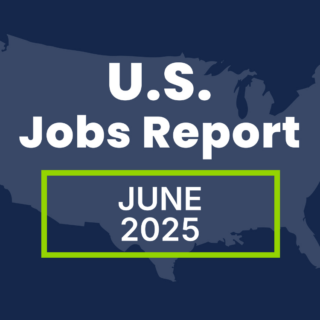Many organizations mistakenly believe Recruitment Process Outsourcing (RPO) solutions are only for large enterprises with ongoing, high-volume hiring needs. While full-scale RPO might seem out of reach for some organizations, a modular RPO approach offers the flexibility to address specific recruitment challenges without overhauling your entire talent acquisition infrastructure.
Modular RPO can deliver value to organizations of any size, including small- to medium-sized enterprises or those with short-term or specialized hiring requirements. Here are five key indicators that your current recruitment strategy might benefit from a modular RPO solution.
1. Your Internal Team Is Struggling to Keep Up with Demand
When your organization faces sudden spikes in hiring demand—whether for seasonal recruitment, rapid expansion, or project launches—your internal team can quickly become overwhelmed. These periods of increased volume often require you to scale up recruitment efforts quickly without the luxury of permanently increasing your internal headcount.
Maintaining quality while meeting aggressive timelines becomes nearly impossible with existing resources. Your team may resort to rushed screening processes, extended working hours, or compromised candidate experiences, all of which can lead to poor hiring decisions and damage to your employer brand.
Modular RPO provides the surge capacity you need during these peak periods. Specialized teams can quickly ramp up to handle the increased volume or hiring for a new project while maintaining consistent quality standards. Once the hiring surge or project is complete, you can scale back the support without the ongoing costs and complications of permanent staff additions.
This approach is particularly valuable for organizations with predictable seasonal patterns, such as retail companies preparing for holiday seasons, or those opening new facilities that require rapid team building.
2. You’re Managing Specialized Skill Requirements with Different Candidate Experiences
When you need to hire for roles requiring niche expertise or hard-to-find skills, your internal team may lack the specialized knowledge, professional networks or sourcing strategies needed to identify and attract the right candidates. The talent pool may be limited, candidates may be passive and not actively job searching, or the role may require specific credentials that are difficult to assess without industry expertise.
Different specialized roles also demand vastly different candidate experiences. A software engineer’s journey differs significantly from a marketing manager’s or a specialized researcher’s expectations. Each requires tailored communication, specific assessment methods, and industry-appropriate processes that your recruitment team may struggle to deliver consistently.
Case Study: Infrastructure Company Ecologist Role
An infrastructure company struggled to fill a newly created ecologist role due to low brand recognition in the environmental sector and poor response to the job ads. The company’s internal recruitment team lacked the specialized knowledge and networks needed to proactively approach environmental professionals.
PeopleScout’s Talent Sourcing solution provided specialized headhunting, screening, and shortlisting services, allowing the client to retain their usual interview and offer management processes. We led a targeted search across industry governing bodies, environmental societies and networking groups, reviewing over 700 profiles. We proactively reached out to passive candidates to inform them of the role and gauge their interest, dispelling misperceptions about the transport industry at the same time.
The result was a shortlist of two qualified candidates, resulting in a successful hire within 11 weeks—a significant improvement over the client’s previous unsuccessful attempts.
3. You Need to Scale Rapidly in New Markets or Unfamiliar Territory
When entering new markets, launching new product lines, or expanding into unfamiliar territories, your organization faces unique recruitment challenges that require rapid scaling capabilities. You may lack local market knowledge, employer brand recognition, or understanding of regional compensation and cultural expectations, all while needing to build teams quickly to capitalize on new opportunities.
Modular RPO solutions, like PeopleScout’s Talent Mapping or Organizational Culture & EVP Diagnostic, can support recruiting in new geographic markets by helping you understanding local talent pools, competition, regulatory requirements, and how to adapt your employer brand for cultural nuances. Without this expertise, you risk extended time-to-fill, higher costs, and poor candidate experiences that can damage your reputation in the new market before you’ve even established yourself.
Case Study: Consumer Goods Brand Transition
A consumer goods brand splitting into two companies needed to optimize their talent acquisition strategy to support the transition and future growth. The challenge involved not just managing the launch of the two companies but also improving their ability to compete for talent in competitive rural markets.
PeopleScout’s Talent Diagnostic solution team assessed their entire talent lifecycle, including conducting over 20 stakeholder interviews. The diagnostic focused on improving access to high-quality candidates in competitive rural markets, and provided recommendations for process streamlining and technology optimization to create consistent candidate experiences and diverse talent pools.
The client praised the expertise, partnership and flexibility during this critical transition period. Based on the diagnostic recommendations, they engaged PeopleScout for a full-cycle RPO implementation, demonstrating how modular solutions can evolve into broader partnerships when they deliver value.
4. Time-to-Fill Metrics Are Consistently Missing the Mark
If your average time-to-fill has stretched beyond industry benchmarks and continues to climb, it’s often a symptom of deeper resource constraints. Your internal recruitment team may be overwhelmed with current demands, but a full RPO solution seems excessive or costly for your organization’s size or hiring volume. This is a common scenario where modular RPO provides the perfect middle ground when adding permanent headcount may not be possible.
Modular RPO allows you to augment your internal team’s capacity in specific areas where you’re experiencing the greatest strain. From initial candidate sourcing to onboarding, you can add specialized support without the commitment and cost of full-service RPO.
This approach is particularly valuable for mid-sized organizations that have outgrown basic recruitment methods but aren’t ready for enterprise-level solutions. It provides access to advanced recruitment technologies, methodologies, and expertise that would be cost-prohibitive to develop internally.
5. When Drop Offs and Early Turnover Has Increased
If you’re experiencing high drop-off rates during the hiring process and increased early turnover among new hires, it’s a clear sign that specific parts of your recruitment process are consistently underperforming or creating bottlenecks. High drop-off rates may stem from poor candidate communication, lengthy or confusing application processes or misaligned expectations. Early turnover often results from inadequate candidate assessment methods, poor cultural fit evaluation or lack of communication to keep new hires warm before their start date.
Leading modular RPO providers can conduct process diagnostics or EVP diagnostics to identify specific areas where candidates are dropping out and implement targeted solutions. Some providers also offer technology diagnostics which can identify areas to improve your recruitment tech stack to find efficiencies.
By addressing these process gaps, you can improve overall recruitment efficiency and effectiveness without disrupting the parts of your process that are working well. This surgical approach often delivers better ROI than attempting to fix everything at once.
Are You Ready for Modular RPO?
Modular RPO isn’t about replacing your internal recruitment function—it’s about strategically augmenting it to address specific challenges and gaps. The beauty of modular RPO lies in its flexibility and scalability. So, how do you know if you’re ready for a modular RPO solution?
Signs You’re Ready for Modular RPO
- You’re looking to scale recruitment efforts without increasing permanent talent acquisition headcount
- Your recruitment process is underperforming, and you need a targeted and/or short-term solution
- You need specialized expertise for specific roles or markets
- You want to maintain control over certain aspects of hiring while improving others
- You want to test RPO services before committing to a full solution
The goal is to create a hybrid approach that combines the strengths of your internal team with specialized external expertise. By partnering with modular RPO providers for specific challenges, you maintain control over your overall hiring strategy while accessing the tools, technologies, and expertise needed to compete effectively in today’s talent market.
You can start with a focused pilot program targeting your most pressing recruitment challenge. As you see results and build confidence in the partnership, you can expand the scope to address additional needs or role types.
In an environment where the right hire can make or break business initiatives, organizations that strategically leverage modular RPO gain a significant competitive advantage. If any of these signs resonate with your current situation, it may be time to explore how modular RPO can transform your recruitment outcomes.




